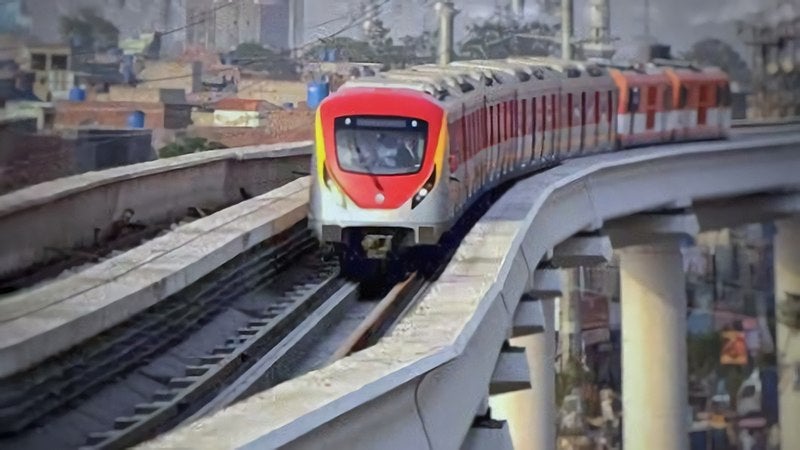
The first trial run of the Orange Line Metro Train (OLMT), an automated rapid transit system in Lahore, Pakistan has commenced.
Pakistani newspaper the Daily Times reported that Punjab Minister for Transport Jahanzaib Khan Khichi and Minister for Information and Culture Fayyazul Hassan Chohan inaugurated the first trip.

Discover B2B Marketing That Performs
Combine business intelligence and editorial excellence to reach engaged professionals across 36 leading media platforms.
Construction work on the Orange Line began in 2015 and was originally scheduled to last 27 months. A Lahore High Court stay order and increasing costs delayed the project.
The Orange Line runs from Dera Gujran to Ali Town. Lahore Metro expects it to begin serving the public from March next year.
Its trains are capable of travelling at a maximum speed of 80kmph. It will operate at an average speed of 34.8kmph.
The 27.1km line consists of 25.4km of elevated track and 1.72km of underground track. The line has also 26 substations, of which two are underground.

US Tariffs are shifting - will you react or anticipate?
Don’t let policy changes catch you off guard. Stay proactive with real-time data and expert analysis.
By GlobalDataWith a capacity of 200,000 passengers each day, the train is capable of covering the entire route in 45 minutes.
In 2014, Pakistan entered into a memorandum of understanding (MoU) with China for the funding of the Orange line. The Exim Bank in China also provided a loan of $1.5bn for the construction.
Pakistan bought 27 trains to operate on the Orange Line with the investment from Exim Bank in 2016.
In July, Akbar Express collided with a stationary freight train at the Walhar Railway Station in Pakistan, killing at least 20 people and injuring more than 70 others.
The Asian Development Bank (ADB) agreed to provide technical assistance to support the improvement of railways in the Central Asian region in January.
The CAREC partnership comprises Afghanistan, Azerbaijan, China, Mongolia, Georgia, Kazakhstan, the Kyrgyz Republic, Pakistan, Tajikistan, Turkmenistan and Uzbekistan.



